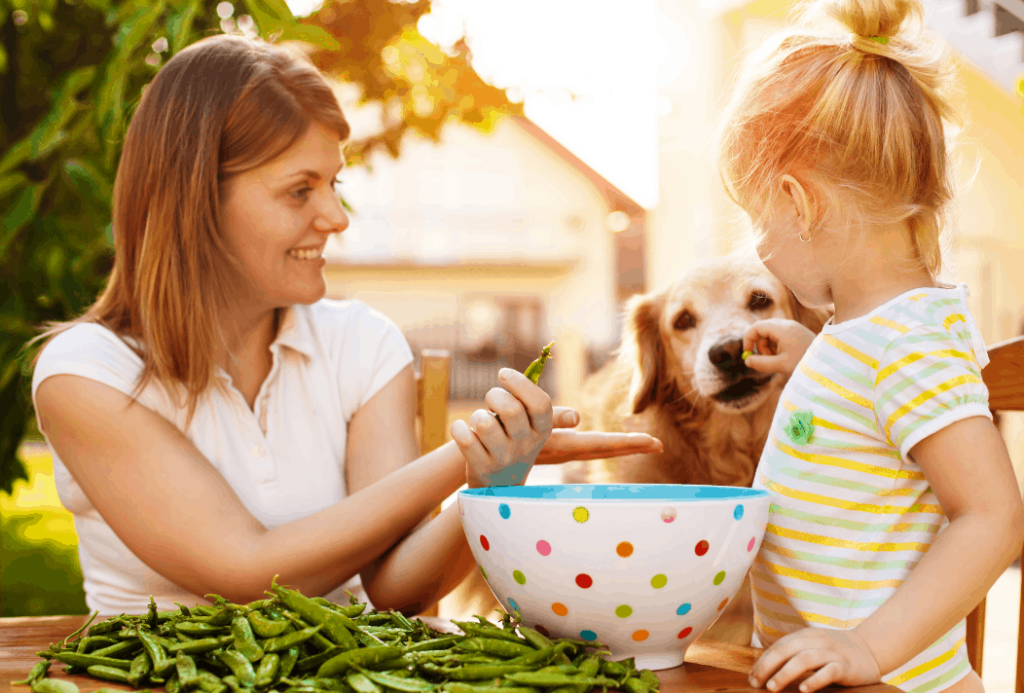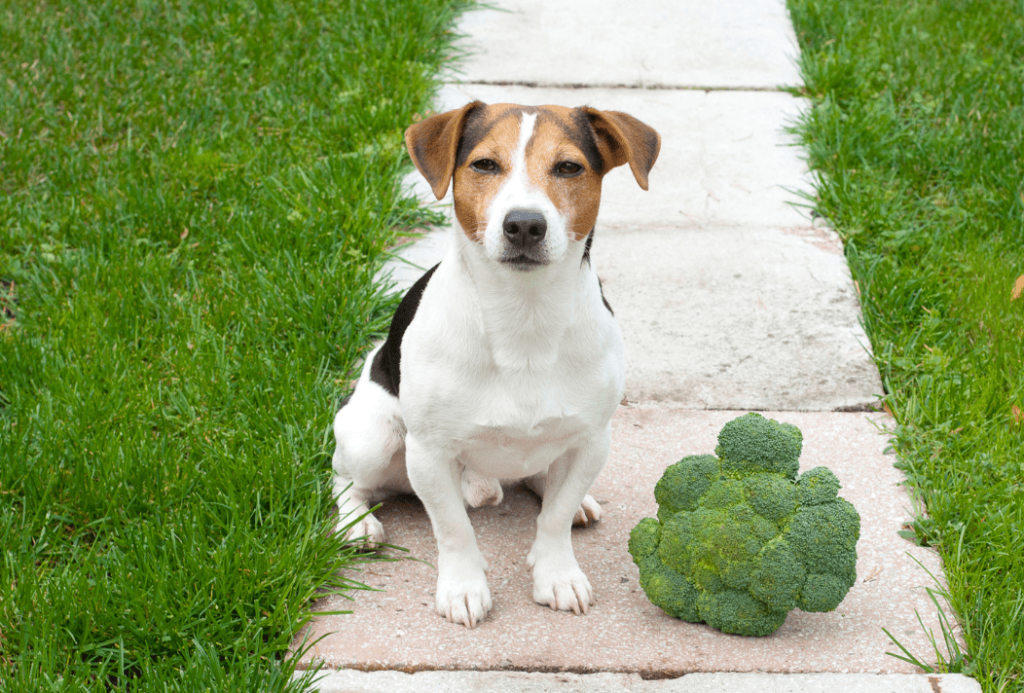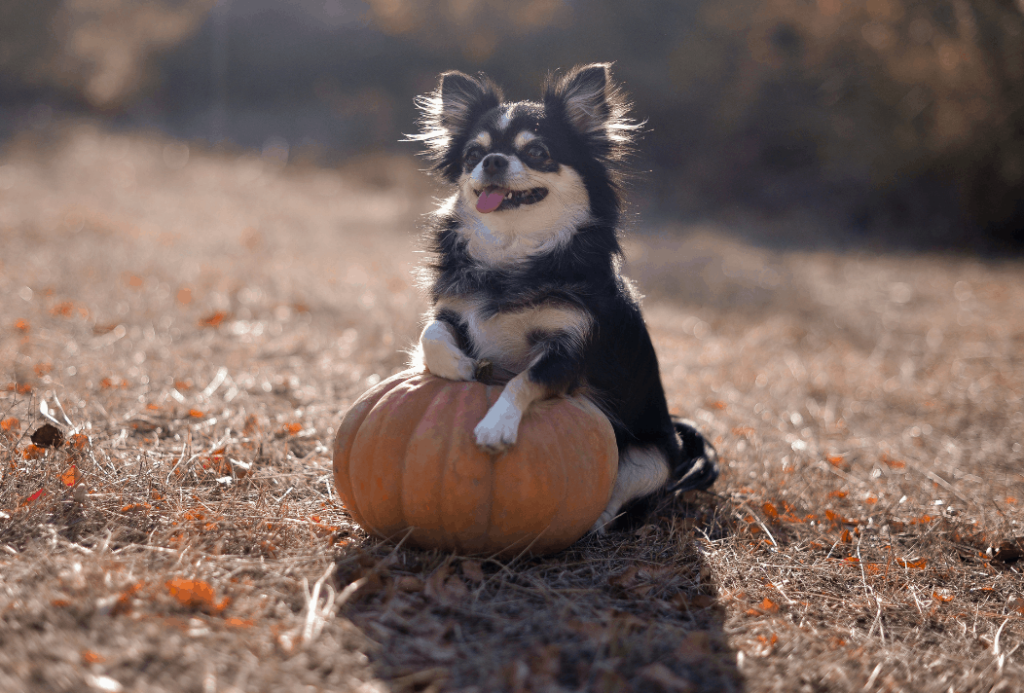Many pet owners are surprised to find that vegetables are an important part of a dog’s diet. Unlike true carnivores that only require meat in their diet, domesticated dogs are omnivorous, which means that they require meat-based and plant-based foods. Dogs can derive many essential nutrients from the vegetables that they eat.
Most commercial diets are balanced with the right blend of vitamins, minerals, and other essential nutrients. Depending on your pet’s situation, vitamin supplementation is discouraged because it is possible to over-supplement, especially when it comes to fat-soluble vitamins like A, D, E, and K. However, it is okay to offer veggies as a treat for your pup! And if you’re offering vegetables to your dog it’s important to know which veggies are safe and those you should avoid.
Vegetables that dogs can eat!
Sweet potatoes
Sweet potatoes are not only a safe treat for your pup, they are also an ingredient in a lot of today’s commercial diets. Sweet potatoes are a good source of fiber which promotes a healthy digestive tract. They are also a carbohydrate which helps to fuel the body – the brain, nervous system, kidneys, and heart all benefit from the carbs contained within sweet potatoes.
Sweet potatoes can be served roasted or steamed, and if they are fed raw, they should be chopped up into smaller pieces to decrease the risk of choking. Dogs who are overweight or have diabetes should avoid them because carbohydrate intake needs to be limited with these conditions.
Peas
Snow peas and sugar snap peas make for great low-calorie treats for dogs. Peas are an excellent source of B vitamins, magnesium, and zinc, which helps regulate thyroid gland function and the immune system. Peas can be served up steamed or even raw but be cautious when giving pea pods to smaller dogs and puppies. It is best to avoid giving them to dogs with urinary or kidney issues due to their high purine content. Also, avoid giving canned peas due to their high salt content.

Brussel sprouts
Another high-fiber vegetable, brussel sprouts also contain vitamin C and magnesium, which is important for muscle function. They can be served boiled or steamed, and if you plan on feeding them raw, make sure to cut them up into smaller pieces to minimize the risk of choking. You should also avoid feeding brussel sprouts that have been cooked in oil or seasoning. Feeding too many brussel sprouts can cause bloating due to gas, so give these very infrequently!
Zucchini
While technically a fruit, the nutritional content of zucchini is similar to that of vegetables. They are a crunchy, low-calorie snack that can be served raw in small pieces or slices. Zucchini can also be steamed which makes it easier for small breed dogs and puppies to eat. Be sure to avoid seasonings!
Carrots
Carrots are one of the most popular vegetable treats for dogs. They contain a compound called beta-carotene which is used in the production of vitamin A. This vitamin is essential for a well-functioning immune system and for vision. Without vitamin A, dogs (and humans) can suffer from night blindness.
Carrots can be served steamed or boiled, and raw carrots make for a nice crunchy snack that can also help minimize plaque buildup on your dog’s teeth. Small dogs should only have raw carrots that are one to two inches in length to minimize the risk of choking.
Broccoli
Broccoli is a great source of fiber and vitamin C which promotes a healthy immune system. However, too much broccoli (more than 10% of their daily food allotment) may cause irritation to the lining of the stomach and the esophagus. Raw broccoli is a nice crunch treat but should be given in smaller pieces, and cooked broccoli can be tolerated by many dogs.

Kale and spinach
Spinach and kale are dark, leafy greens which have earned the moniker of “superfood” because they are some of the most nutrient-dense vegetables on this list. They are a great source of vitamins A and K plus iron and calcium. Iron is essential for red blood cells so that they can carry oxygen to the entire body, and calcium is important for bone health.
Kale and spinach can be served raw or steamed, whole or cut up into smaller pieces. Avoid any seasonings and oils. You might avoid giving these to your dog if he has bladder stones or other urinary issues because too much calcium in the diet can be problematic.
Green beans
Green beans are another high-fiber and low-calorie treat for dogs. Green beans are even considered safe to give to dogs with diabetes, though you should always have a conversation with your veterinarian if you would like to start giving them to your diabetic dog. Green beans can be served steamed, boiled, raw, and chopped. Avoid giving canned green beans for the same reason as canned peas.
Pumpkin
Like zucchini, pumpkin is technically a fruit because it is the flowering part of the plant, but from a nutritional standpoint, it is a vegetable. Pumpkin has a very high fiber content which makes it useful for dogs with diarrhea or constipation. For the former, it can bulk stools, and for the latter, it can make it easier for stools to pass. Pumpkin also contains pepita oil which contains omega-6 fatty acids. These fatty acids have anti-inflammatory properties.
Cooked or canned pumpkin are safe to give your pup. Avoid pie-filling varieties which are very high in sugar content. Also avoid giving your dog pumpkin seeds.

Vegetables that are bad for dogs
Garlic and onions
Members of the Allium family include onions, garlic, shallots, and chives. These are very toxic for dogs because they cause red blood cells to break apart, resulting in life-threatening anemia.
Asparagus
Even when cooked or steamed, asparagus can be very hard to chew and could become a choking hazard for your pup. It is best to go with other green vegetables instead.
Mushrooms
There are thousands of species of mushrooms, and the majority of them are toxic to dogs. They can cause gastrointestinal upset and severe neurologic symptoms. Mushrooms purchased from the grocery store are generally safe, but since there are so many other safe veggie options, it is best to avoid these.
Vegetables are a treat, not the main course
There are lots of different vegetables that are safe for your dog to snack upon!
Always remember that vegetables are treat for dogs and should only make up about 10% of your dog’s daily caloric intake. If you’re not sure if a treat is safe for your pup, make sure to talk to your veterinarian about it first.









